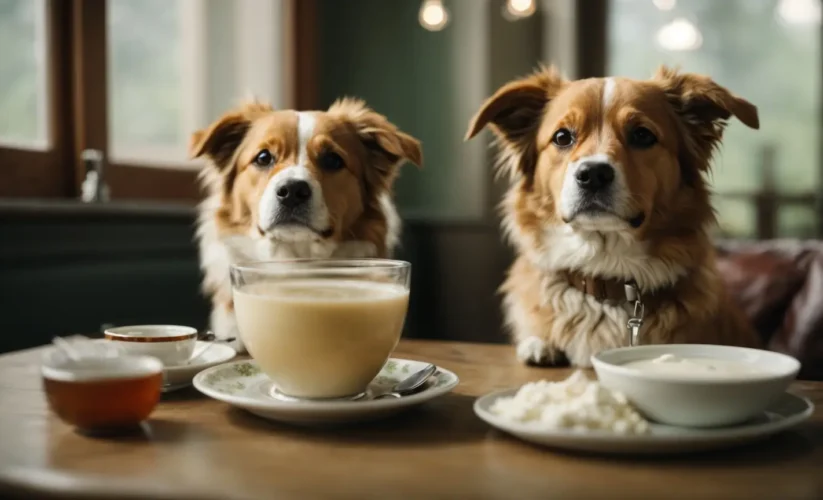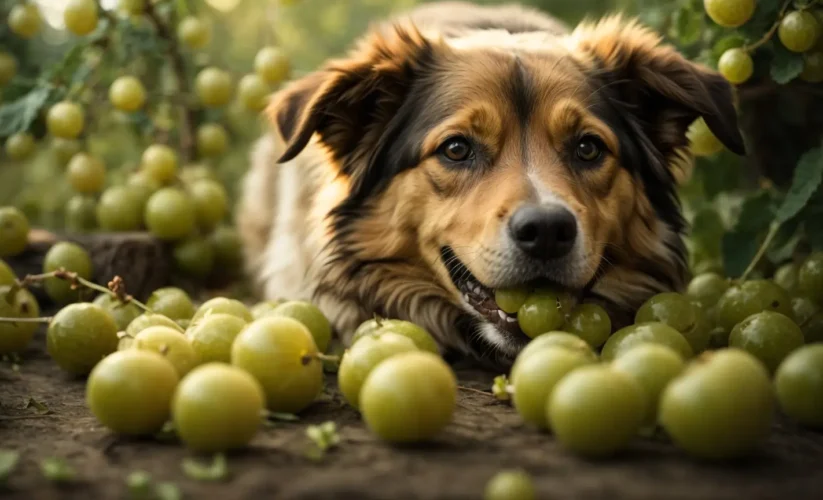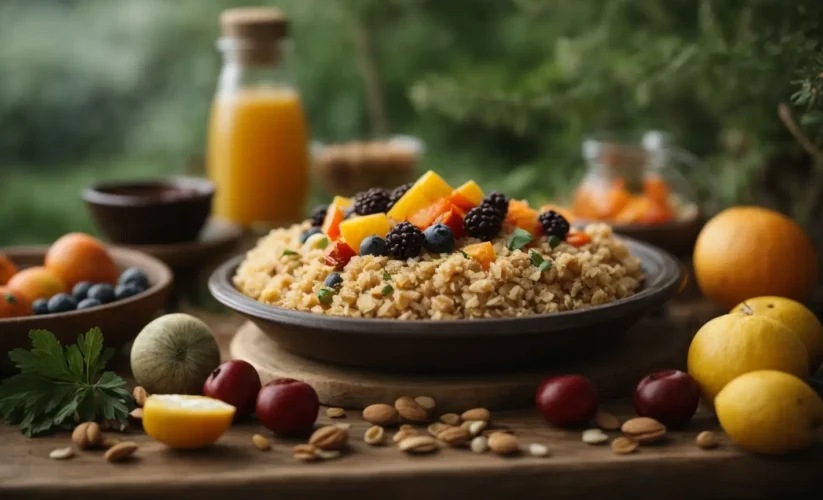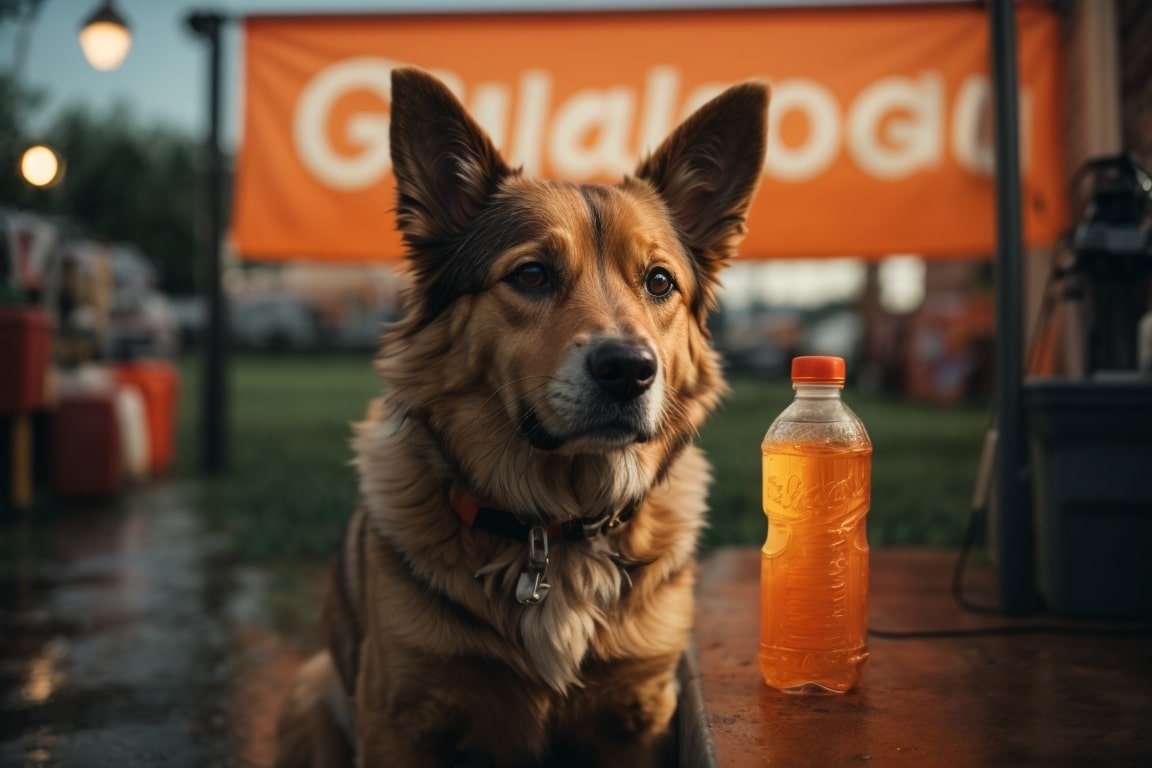Can Dogs Drink Tea with Milk?

There’s a strong chance you’ve found yourself casually sipping your cup of tea, and out of nowhere, your four-legged friend approaches with their tail wagging and eyes pleading, begging for a share of your tea. It’s hard to resist their charm, right? But, it brings us to the question: can dogs drink tea with milk? Let’s unravel this together.
Understanding Dogs’ Dietary Requirements
Let’s take a moment to delve into the dietary world of our canine companions. Dogs, although classified as omnivores, lean more towards the carnivorous side of the scale. Their diet primarily revolves around proteins which they source predominantly from animals. Now, while our furry friends can tolerate certain dairy and plant products, it’s essential to remember that their digestive system is not designed to handle a broad spectrum of human food.
The dietary balancing act for dogs involves a careful mix of proteins, carbohydrates, fats, vitamins, and minerals. Each of these nutrients plays a vital role in their overall health. Proteins, for instance, provide the building blocks for cell growth and repair. Carbohydrates serve as a valuable energy source, while fats are necessary for various bodily functions, including the absorption of certain vitamins.
Meanwhile, vitamins and minerals are crucial for maintaining optimal health and body function. They are involved in numerous biological processes, from bone formation to blood coagulation.
But even though dogs can eat certain human foods, it doesn’t mean they should eat all types. Their digestive systems function differently from ours, which is why some foods that are safe for us can be harmful to them. It’s always important to do your research or consult with your veterinarian before introducing new foods into your dog’s diet. After all, the wellbeing of our four-legged family members is a top priority. So, is a cup of tea with milk suitable for them? Let’s continue our exploration.
The Truth About Dogs and Tea
It might seem harmless, maybe even cute, to share a cozy cup of tea with your furry friend. But before you extend that teacup, it’s vital to know that most teas could potentially harm your dog. The culprit? Caffeine. Dogs, unlike their human counterparts, are highly sensitive to caffeine. This stimulant can induce a myriad of health problems, ranging from restlessness and rapid breathing to heart palpitations, muscle tremors, and even seizures.
Moreover, tea isn’t just a source of caffeine; it also contains theobromine, another stimulant which dogs cannot metabolize efficiently. The combination of caffeine and theobromine makes tea doubly harmful to our four-legged friends. Symptoms of theobromine poisoning include excessive thirst, drooling, vomiting, and in severe cases, it can lead to abnormal heart rhythm and seizures.
What about caffeine-free teas, you might ask? It’s a valid question, but even decaffeinated teas aren’t a safe bet. They still contain trace amounts of caffeine and theobromine. Besides, many herbal teas include ingredients that, although beneficial to us, can be toxic to dogs. Certain herbs and botanicals found in herbal teas can cause upset stomachs, induce vomiting, or lead to other health issues in dogs.
To top it all off, the sugar and artificial sweeteners often added to tea can wreak havoc on a dog’s oral health and overall wellbeing. Xylitol, an artificial sweetener commonly used in various food products, is particularly dangerous to dogs. It can cause rapid insulin release, leading to hypoglycemia (low blood sugar) and potentially life-threatening liver failure.
So, it’s pretty clear: while you’re enjoying your cup of hot tea, it’s best to let your pup stick to their bowl of water. It might not seem as exciting, but it’s the safest and most beneficial drink for them. After all, their health and happiness are what matters most to us, right? Now, let’s explore another component of our query: milk. Can our canine companions handle it? Stay with us as we uncover the facts.
The Issue with Dogs and Milk
The question of dogs and milk is a complex one. It’s not a clear cut “yes” or “no.” Milk, while a delightful treat for some dogs, can prove troublesome for others. Many dogs possess a certain degree of lactose intolerance. This means they lack lactase, the crucial enzyme needed to break down lactose – the primary sugar in milk. When consumed, it could lead to discomforting digestive issues, such as stomach upset, gas, or even diarrhea.
On the other hand, there are dogs who can tolerate dairy products well, showing no adverse reactions. If your pup falls into this category, still, moderation is key. While your dog might love the taste of milk, it’s essential to remember it is high in fat. Overconsumption of fatty foods could lead to unwanted weight gain and other health complications, like pancreatitis, which is inflammation of the pancreas.
So, if you’re thinking about adding a dash of milk to your dog’s diet, it’s best to approach it with caution. Start by offering a small amount and observing any changes in your dog’s behavior or digestive health. If you notice any signs of distress, it would be best to discontinue giving them milk.
Ultimately, the suitability of milk for your dog largely depends on their individual digestive system and overall health. Therefore, before introducing any new food item, especially one as potentially problematic as milk, consulting with your vet is always a wise move. They can offer personalized advice based on your pet’s unique health profile, ensuring that their dietary needs are met in a safe and nutritious manner.
Safe Alternatives for a Dog’s Drink
No doubt, it’s a bummer that our furry pals can’t enjoy a sip of tea with us. But don’t worry, there are still a host of other fun and safe beverages you can treat them with. Top of the list is always going to be good old water. Water is the life force that keeps our canine companions healthy, hydrated, and happy. Always ensure that your pet has access to clean, fresh water, particularly during hot weather or after vigorous exercise.
In the mood to treat your pup to something a little more exciting? Why not consider dog-friendly broths? Not only are they tasty, but broths can also be an excellent source of hydration and essential nutrients. Just remember to opt for broths that are low in sodium and free from ingredients such as onions or garlic, which are toxic to dogs.
For an adventurous twist, you can try concocting a homemade, fruit-infused water. All you need is a dog-safe fruit like blueberries or watermelon, clean water, and a little bit of creativity. Simply infuse the water with the fruit and serve it up as a refreshing treat. It’s like a doggie version of spa water! Just make sure to remove any seeds from the fruit before adding it to the water, as certain seeds can be harmful to dogs.
While these options offer a fun way to hydrate your pet, it’s crucial to remember that each dog is unique. Their dietary needs and reactions to food can vary widely. So, as tempting as it might be to spoil your pet with new treats, always introduce any new food or drink slowly and observe your dog closely for any unusual reactions. And of course, the advice of your vet is indispensable. Always consult them before making significant changes to your pet’s diet or if you have any concerns about a specific food or beverage.
So yes, our pups may not be able to share a cup of tea with us, but with a little creativity, we can make sure their bowls are filled with safe, nutritious, and exciting beverages. Hydrating your dog doesn’t have to be a boring task; it can be just as fun and rewarding as treating them to their favorite chew toy or a long walk in the park!
Safety First – When to Consult Your Vet
If your dog, being the sneaky little creature they can sometimes be, managed to snatch a sip of your tea or milk and you observe signs of distress, don’t panic! But, don’t brush it off either. Your immediate call to action should be to get in touch with your trusted vet right away. It’s always wiser to lean on the side of vigilance when it comes to the wellbeing of our beloved canine companions.
Introducing new foods or beverages into your pet’s diet isn’t something to be taken lightly. Even if it’s something as seemingly harmless as a drop of milk or a lick of tea, remember that what’s safe for us may not be for them. Before embarking on any dietary experiments, always involve your vet in the decision-making process.
They know your pet’s health history like the back of their hand and can provide tailored advice on what’s safe and what’s not. Their guidance could be the difference between a happy, healthy pup and an emergency trip to the animal hospital. So let’s keep our furry friends safe and consult with professionals before making any dietary changes. After all, we want our tea time to be a relaxing affair for everyone involved, don’t we?










